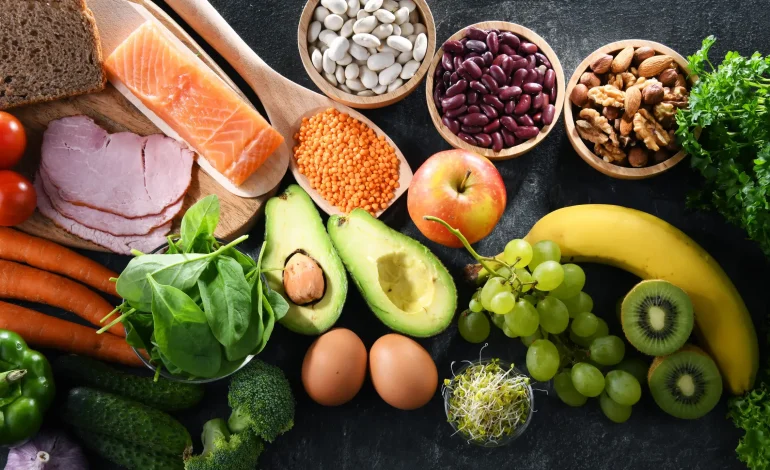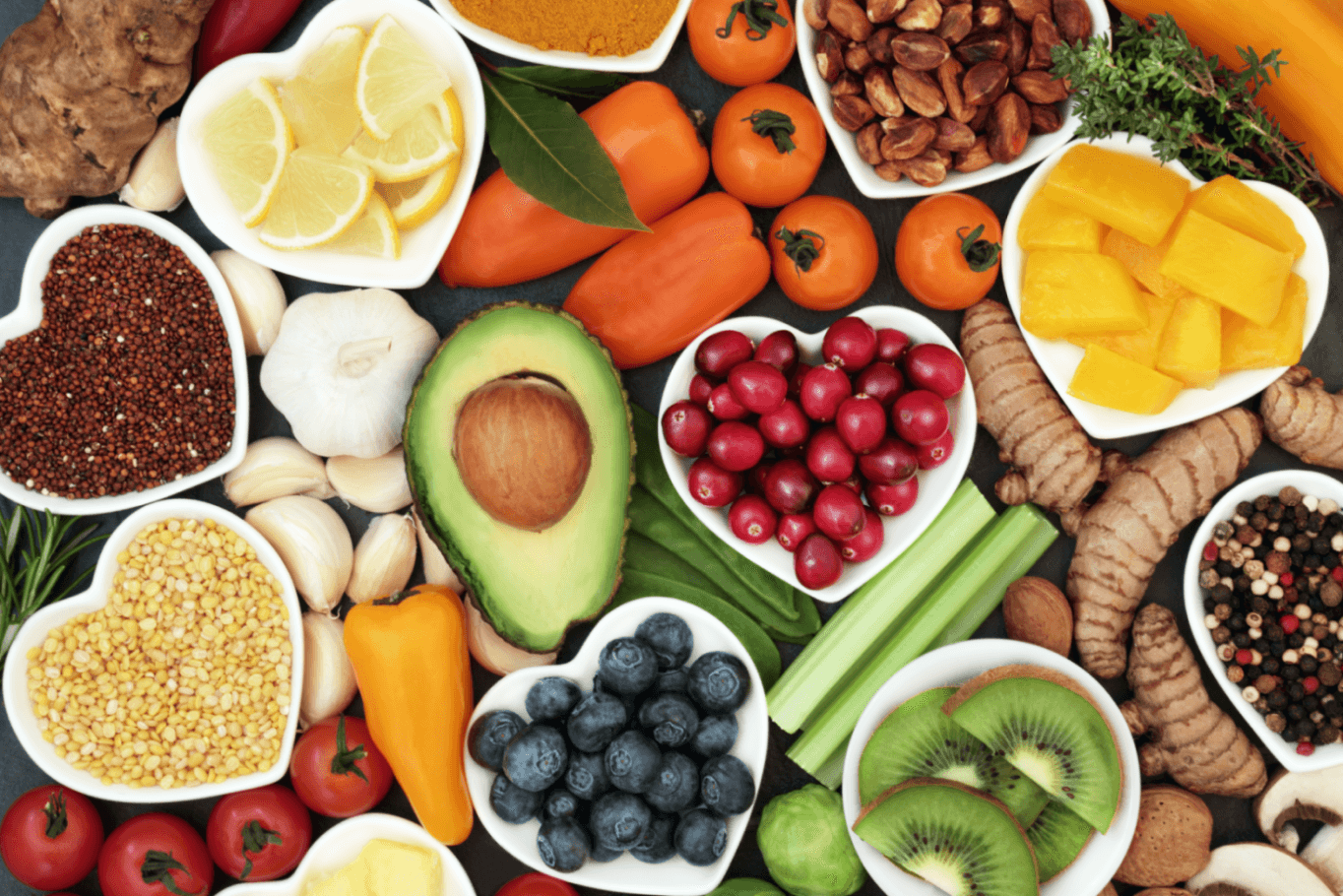The Healing Power of Food: How Nutrition Shapes Health and Longevity

“Let food be thy medicine, and medicine be thy food.” This famous quote, attributed to Hippocrates over 2,000 years ago, continues to resonate in modern science. While medicine plays a crucial role in treating illness, food is increasingly recognized as a primary tool in preventing disease, maintaining health, and even reversing certain conditions.
In today’s world of fast food and busy lifestyles, understanding the profound link between health and food has never been more important. Nutrition is not just about fueling the body—it influences how we feel, how we age, and how we thrive.
Food as the Foundation of Health
Our bodies are made up of trillions of cells, and these cells rely on nutrients to function optimally. Vitamins, minerals, proteins, healthy fats, and carbohydrates provide the building blocks for energy, immunity, and repair. When our diet is rich in whole, nutrient-dense foods, our bodies flourish. Conversely, processed foods high in sugar, sodium, and unhealthy fats can trigger chronic health issues.
Research consistently shows that diets high in fruits, vegetables, whole grains, and lean proteins are linked to lower risks of heart disease, diabetes, obesity, and cancer. Meanwhile, ultra-processed foods are associated with inflammation, metabolic disorders, and shortened lifespan.
Key Nutrients and Their Health Benefits
1. Proteins: The Body’s Building Blocks
Proteins repair tissues, build muscles, and support hormones and enzymes. Lean sources like fish, legumes, nuts, and poultry promote satiety and help regulate metabolism.
2. Healthy Fats: Fuel for the Brain
Omega-3 fatty acids, found in salmon, flaxseeds, and walnuts, reduce inflammation, improve brain health, and lower cardiovascular risks. Healthy fats also help absorb fat-soluble vitamins A, D, E, and K.
3. Complex Carbohydrates: Energy That Lasts
Whole grains, beans, and starchy vegetables provide sustained energy and fiber, which supports digestion and gut health. Unlike refined carbs, they prevent sharp spikes in blood sugar.
4. Vitamins and Minerals: Micronutrients with Macro Benefits
-
Vitamin C strengthens immunity and supports skin health.
-
Vitamin D regulates bone strength and mood.
-
Magnesium aids muscle and nerve function.
-
Zinc accelerates wound healing and supports immunity.
5. Phytonutrients: Nature’s Protective Compounds
These are plant-based chemicals with antioxidant and anti-inflammatory effects. Found in colorful fruits and vegetables, they reduce oxidative stress and support long-term health.
The Gut-Health Connection
One of the most exciting discoveries in modern nutrition is the role of the gut microbiome. Our digestive system hosts trillions of bacteria that influence everything from immunity to mood. A healthy gut microbiome thrives on fiber-rich foods like vegetables, legumes, and whole grains, while processed sugars and excessive antibiotics can disrupt this delicate ecosystem.
Foods like yogurt, kefir, kimchi, and sauerkraut provide probiotics that restore healthy gut bacteria. Meanwhile, prebiotics (fibers found in bananas, garlic, and onions) feed these microbes, creating a balanced environment that improves digestion and overall health.
Food as Prevention

The World Health Organization (WHO) estimates that poor diet contributes to nearly 11 million deaths annually worldwide. Many of these deaths are linked to preventable conditions like heart disease, type 2 diabetes, and obesity.
Here are some powerful examples of how food acts as prevention:
-
Heart Disease: Diets rich in olive oil, fish, and nuts (like the Mediterranean diet) lower cholesterol and blood pressure.
-
Diabetes: Fiber from whole grains and legumes stabilizes blood sugar levels.
-
Cancer: Cruciferous vegetables (broccoli, kale, cabbage) contain compounds that may reduce cancer risk.
-
Osteoporosis: Calcium and vitamin D from dairy, leafy greens, and fortified foods strengthen bones.
Superfoods: Myth or Miracle?
The term “superfood” has become popular in health circles, often applied to nutrient-dense foods like blueberries, chia seeds, or kale. While no single food can provide all nutrients, many of these so-called superfoods do pack exceptional health benefits.
-
Blueberries: Rich in antioxidants that protect against cognitive decline.
-
Turmeric: Contains curcumin, a compound with anti-inflammatory properties.
-
Spinach: Loaded with iron, vitamin K, and folate.
-
Quinoa: A complete protein source, rich in fiber and minerals.
Rather than focusing on one “magic bullet,” a balanced variety of whole foods is the true path to long-term health.
The Dangers of the Modern Diet
Unfortunately, modern eating habits often prioritize convenience over nutrition. Ultra-processed foods—laden with added sugars, artificial flavors, and unhealthy fats—dominate many diets. These foods not only lack essential nutrients but also contribute to:
-
Obesity
-
Hypertension
-
Insulin resistance
-
Chronic inflammation
Sugary drinks, refined grains, and fried fast foods are among the worst offenders, creating a cycle of cravings and health decline.
Practical Steps Toward Healthier Eating
-
Choose Whole Over Processed – Replace packaged snacks with fresh fruits, vegetables, or nuts.
-
Prioritize Balance – Aim for a plate divided into half vegetables, one-quarter lean protein, and one-quarter whole grains.
-
Stay Hydrated – Water supports every bodily function. Limit sodas and sugary drinks.
-
Plan Meals – Preparing meals in advance reduces reliance on unhealthy fast food.
-
Mindful Eating – Pay attention to hunger cues and savor meals without distraction.
Food and Mental Health
Nutrition not only affects the body but also the mind. Studies show strong links between diet and mental health:
-
Omega-3 fatty acids can reduce symptoms of depression.
-
Magnesium supports relaxation and reduces anxiety.
-
Diets rich in vegetables and whole grains are associated with lower risks of cognitive decline.
Conversely, high sugar intake has been linked to mood swings and an increased risk of depression.
Cultural Wisdom and Modern Science
Across the globe, traditional diets reflect centuries of wisdom. The Mediterranean diet, Japanese cuisine rich in fish and fermented foods, and India’s spice-heavy meals all align with modern nutritional science. These diets emphasize fresh, seasonal ingredients and minimal processing—principles that modern eaters can adopt for healthier lives.

Conclusion
Food is more than fuel—it is medicine, prevention, and a pathway to vitality. A diet grounded in whole, nutrient-rich foods supports the body’s natural defenses, boosts mental clarity, and fosters longevity. While modern conveniences tempt us with fast, processed options, the key to health lies in reconnecting with natural, balanced nutrition.
The future of health care is not just in medical interventions but in the choices we make at every meal. By embracing the healing power of food, we not only nourish our bodies but also lay the foundation for a healthier, longer, and more fulfilling life.







